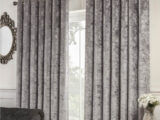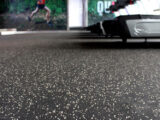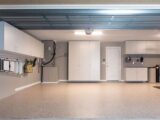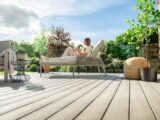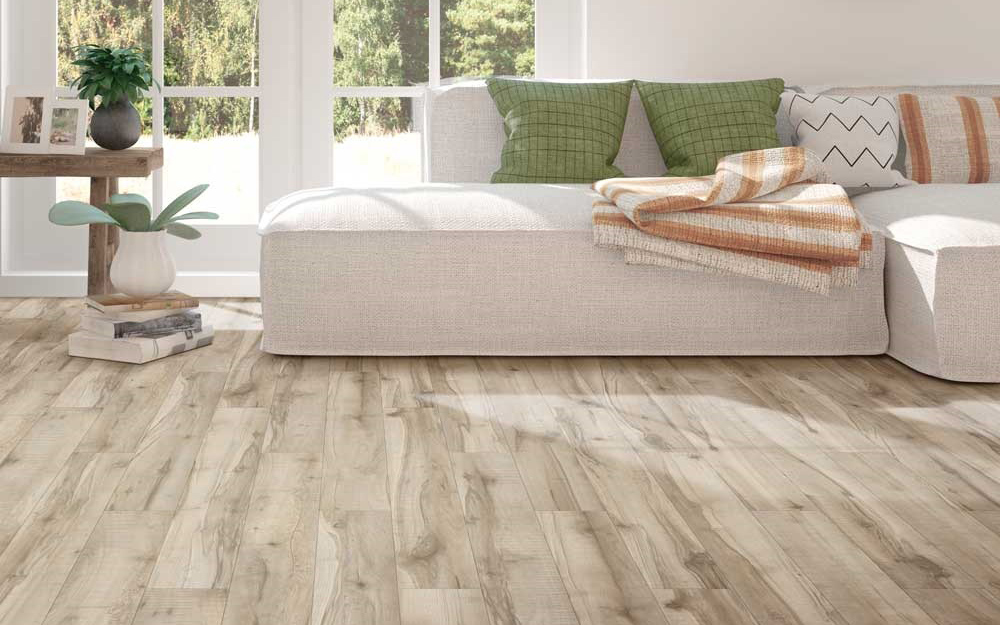
Is Vinyl Flooring Really Waterproof? What Homeowners Need to Know
April 11, 2025When it comes to choosing the right flooring for your home—especially in moisture-prone areas like kitchens, bathrooms, and basements—water resistance becomes a top priority. Among the many options available, Vinyl flooring Dubai stands out for its durability, style, and affordability. But is vinyl flooring really waterproof, or is that just clever marketing?
In this comprehensive guide, we’ll break down everything homeowners need to know about vinyl flooring and its waterproof properties—so you can make an informed decision for your next renovation project.
Understanding Vinyl Flooring
Before diving into whether it’s waterproof or not, it’s essential to understand what vinyl flooring is.
Vinyl flooring is a synthetic material made primarily from polyvinyl chloride (PVC). It’s engineered to mimic natural materials like hardwood, stone, and tile, while offering added benefits like easy maintenance and affordability. Vinyl comes in several forms, such as:
- Sheet Vinyl
- Vinyl Tiles
- Luxury Vinyl Planks (LVP)
- Luxury Vinyl Tiles (LVT)
Each type has its own structure and benefits, but all share one key feature: resistance to moisture.
Is Vinyl Flooring Waterproof or Water-Resistant?
Here’s where things get a little technical—and important.
Waterproof Vinyl Flooring
Some types of vinyl flooring, especially Luxury Vinyl Planks (LVP) and Luxury Vinyl Tiles (LVT), are marketed as 100{0f0f956d7579fe9490c069a4f5e7773665de86847739b8feb26399e5e6edad85} waterproof. This means the core material itself will not absorb water, swell, or warp—even if submerged.
These floors are made with a rigid core such as:
- WPC (Wood Plastic Composite) – Waterproof and comfortable underfoot
- SPC (Stone Plastic Composite) – Waterproof and more rigid, perfect for high-traffic areas
Water-Resistant Vinyl Flooring
Basic sheet vinyl or older vinyl tiles may only be water-resistant, not waterproof. This means they can resist spills and moisture to a degree, but prolonged exposure—like flooding or standing water—can eventually cause damage, especially around seams.
Where Vinyl Flooring Works Best
One of the biggest advantages of waterproof vinyl flooring is its versatility. It can be installed in areas where traditional wood or laminate would fail:
- Kitchens – Handles spills and food splashes with ease
- Bathrooms – Moisture won’t cause swelling or warping
- Laundry Rooms – Resists steam, leaks, and detergents
- Basements – Perfect for moisture-prone subfloors
- Entryways – Withstands wet shoes and outdoor debris
Thanks to its waterproof construction, vinyl flooring provides peace of mind in virtually any room of the house.
Installation Matters: Seams and Subfloors
Even if the material itself is waterproof, poor installation can compromise performance.
- Click-lock vinyl planks create a tight, seamless surface that prevents water from seeping underneath.
- Glue-down vinyl must be installed with waterproof adhesives and precise sealing.
- Sheet vinyl needs to be cut and installed with care to avoid gaps or raised edges.
To truly benefit from waterproof vinyl, professional installation or meticulous DIY work is crucial—especially in high-moisture areas.
Pros and Cons of Waterproof Vinyl Flooring
Pros
- 100{0f0f956d7579fe9490c069a4f5e7773665de86847739b8feb26399e5e6edad85} Waterproof Core – Great for all rooms, especially wet areas
- Stylish Options – Mimics wood, stone, tile, and more
- Durable – Scratch, dent, and stain-resistant
- Comfortable – Softer and warmer underfoot than tile or stone
- Easy Maintenance – Simple cleaning with a mop or damp cloth
- Affordable – Cost-effective alternative to hardwood or tile
Cons
- Not Fully Seam-Proof – Water can still seep through poorly installed seams
- Subfloor Must Be Even – Imperfections can affect the look and feel
- Can Fade in Direct Sunlight – Long-term exposure to UV rays may cause discoloration
- Not Biodegradable – Though recyclable in some cases, vinyl is not the greenest option
Tips for Maintaining Waterproof Vinyl Floors
Once installed, waterproof vinyl flooring is incredibly low maintenance. Still, a few smart habits will help preserve its beauty and functionality:
- Clean up spills immediately to avoid slipping hazards or edge lifting
- Use furniture pads to prevent dents and scratches
- Sweep or vacuum regularly to remove dust and grit
- Avoid abrasive cleaners or wax-based polishes
- Use mats at entrances to trap moisture and debris
With proper care, your vinyl floors can look great and perform beautifully for 15–20 years or more.
So, Is It Worth It?
Absolutely. For homeowners who want a stylish, durable, and genuinely waterproof floor without breaking the bank, vinyl flooring—especially LVP and SPC options—is an excellent choice. Whether you’re remodeling your kitchen or finishing your basement, waterproof vinyl offers the perfect blend of function and fashion.
But remember: Not all vinyl floors are created equal. Read product specs carefully, look for “100{0f0f956d7579fe9490c069a4f5e7773665de86847739b8feb26399e5e6edad85} waterproof” in the description, and work with a reputable supplier or installer to get the results you want.
Final Thoughts
Vinyl flooring has come a long way from its outdated predecessors. Today’s high-quality, waterproof vinyl planks and tiles are not only practical but also stylish enough to rival hardwood and ceramic options.
If you’re looking for a Flooring Dubai solution that balances performance, price, and visual appeal—especially in moisture-prone areas—waterproof vinyl flooring is a smart, modern solution that won’t disappoint.
Need help selecting the right type of vinyl flooring for your home? Let us guide you with professional advice and top-tier products tailored to your space and budget.


